About the Finalists 2021/22
Three finalists have won over the high-level jury at the pitch event on 6 May 2022 and broken new grounds to solve the following challenges:
- Addressing structural shortages in emergency services: Flare. Ninety-five percent or 1.2 billion people in Africa lack access to 911/112 services. Via their digital platform, Flare is able to coordinate ambulance services at a moment’s notice.
- Improving sexual health among young people: myPaddi by MOBicure. Approximately two-thirds of all people infected with HIV/AIDS live in sub-Saharan Africa. In comparison to other world regions, few African women have access to contraceptives. myPaddi’s discreet counseling network provides a remedy.
- Enabling far-reaching vaccination campaigns: Vaxiglobal. Millions of people in Africa are not vaccinated because they do not have a vaccination record. The online solution from Vaxiglobal offers security with biometric data.
The three Awardees
Flare
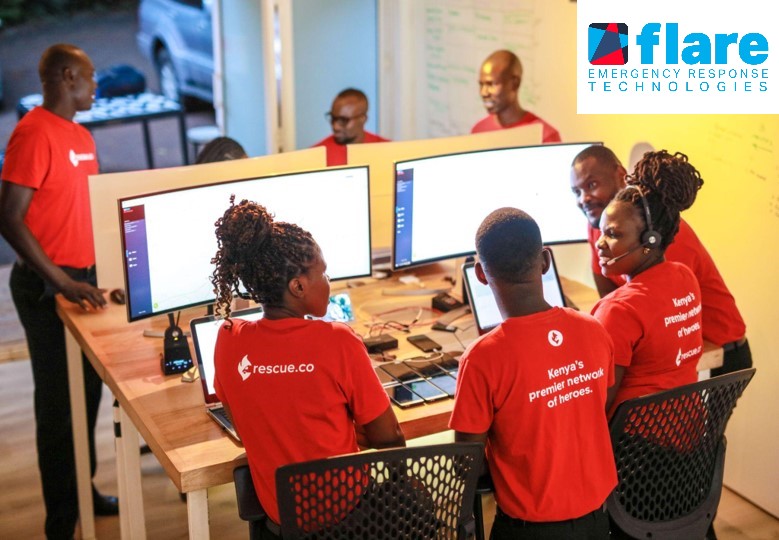
An essential emergency response platform: We are very pleased to congratulate Flare Emergency Response on being one of the awardees of the Kofi Annan Award for Innovation in Africa. This Kenyan enterprise has integrated more than 800 ambulances as well as all nationwide hospitals into their end-to-end platform. During an emergency, Flare is able to instantly dispatch help, provide life-saving care over the phone, and coordinate the right pathway to care.
Ninety-five percent of Africa lacks access to emergency services. During acute incidents, patients, and physicians all too often waste countless hours trying to coordinate ambulances and get to the right hospital, which may not only result in many wasted calls but also, more importantly, the loss of countless lives.
Calling Flare means that you are instantly connected to help with one phone call. The dispatcher triages the case, provides care over the phone, and dispatches the nearest ambulance through the system. Today, the time from an initial call to an ambulance on scene is 15 minutes—a massive difference to the hours it used to take to receive help.
“The platform unifies service providers, facilitates patient transfers, and gives patients a better chance of survival. With Flare, they take care of this for you, and give you back time to treat all the other patients", Doctor Sheila Maina explains.
Since their launch in 2016, Flare Emergency Response has saved over 10,000 acute patients and enabled the safe delivery of 4,000 babies with its network of ambulances, hospital providers, and national emergency services. More than 1 million people already use the 24/7 platform in Kenya. The team of 35 employees (53% women, 66% women in management) is made up of software engineers, clinicians and response specialists.
We wish the whole team of Flare Emergency Services the best of luck in establishing their cloud-based tech platform as a primary emergency service in more countries and saving millions of lives within minutes. The visibility gained from the Kofi Annan Award for Africa as well as its prize money of € 250,000, mentoring, and international network will assist them in expanding to Ghana and other African countries.
myPaddi
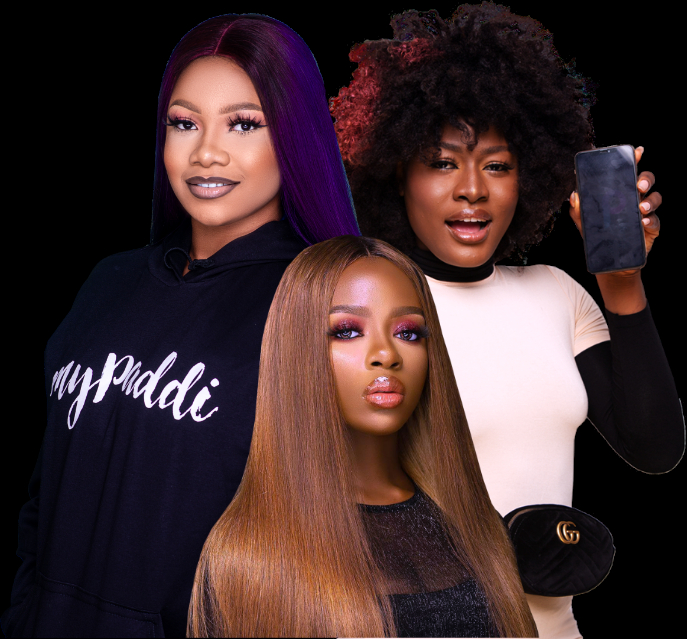
Access to sexual health information, products, and services: We are proud to announce myPaddi by MOBicure as one of the three award winners of the Kofi Annan Award for Innovation in Africa. This Nigerian educational app provides young people with the possibility of discreet counselling, in particular with reference to prevention, sexual abuse, teenage pregnancy as well as HIV and STDs.
Almost a third of Nigerian women between the ages of 25 and 29 have experienced some form of gender-based violence since the age of 15. Because of Nigeria’s low contraceptive prevalence rate a substantial number of women have unintended pregnancies. Beyond that, more than three million Nigerians are infected with HIV.
The app myPaddi (web and mobile) offers accurate sexual and reproductive health information and currently helps 130,000 young people across 16 African countries (70% of them being female aged between 18 and 25) cope with sexual abuse, prevention of teenage pregnancies or HIV infections. It offers anonymous one-to-one sessions with doctors and trained counselors, open and anonymous blog and audio interactions with other young people, and sexual health products like condoms, test kits or contraceptives in its online marketplace.
Founded in 2018, myPaddi by MOBicure has managed to make it on the list of the Top30 Health Innovations in Africa. Their 15 full-time employees (40% female) are working diligently on destigmatizing sexual and reproductive health.
We wish the whole team of MOBicure all the best for developing a chatbot, a new mobile version, and establishing new e-service centers with agents in rural areas across Nigeria. Having won the Kofi Annan Award for Africa with its prize money of € 250,000, mentoring, and international network will support them to expand with new partners, help more users, and save lives.
Vaxiglobal
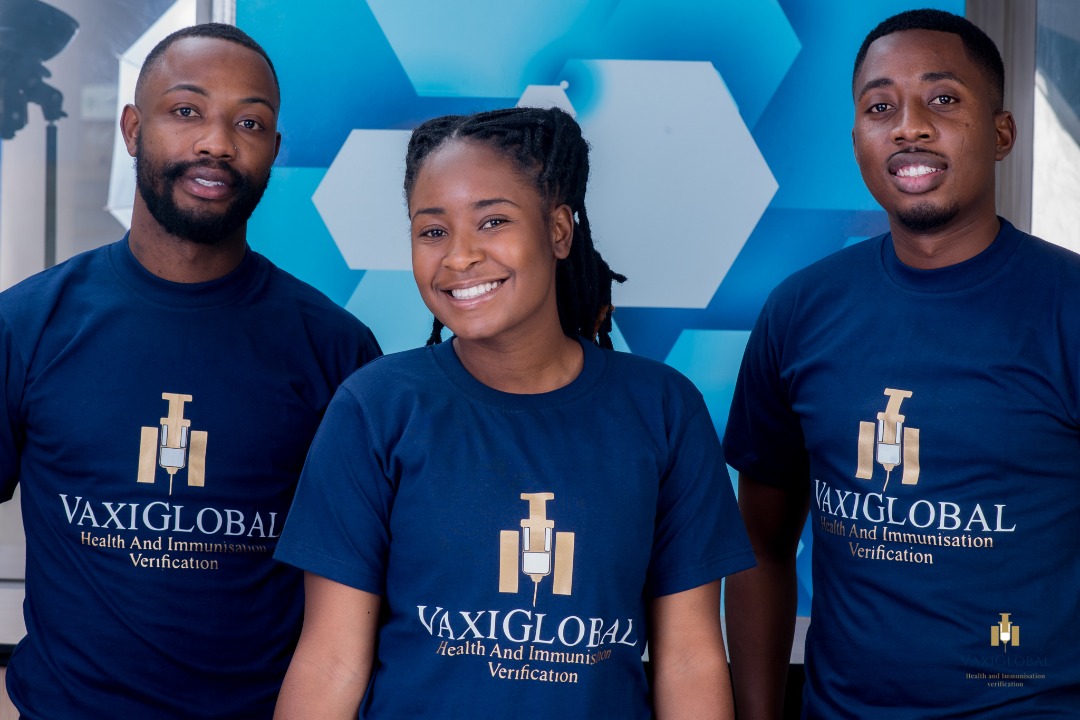
Watch the video VaxiGlobal vaccination verification
Using biometric data to verify vaccine deliveries in Africa: We are taking pride in congratulating Vaxiglobal on being a winner of the Kofi Annan Award for Innovation in Africa. This digital solution from Zimbabwe uses contactless biometrics to minimize resource wastage, improve data quality with open standards and enable the scaling up of vaccination campaigns in African countries.
Millions of Africans are not vaccinated because they either do not have an ID card or have misplaced or lost their vaccination card. Because of this gap between vaccine and administrative data, patients, governments, and donors struggle to estimate the correct number of vaccinations administered and who has been vaccinated.
Vaxiglobal helps provide access to vaccines by scanning individual faces on mobile phones and creating digital certificates in a secure cloud. No other hardware is required, and it is operable offline, too. There are currently 320,000 people registered, and during the COVID-19 pandemic, 1.1 million vaccine doses were verified in pilot campaigns.
Since their launch in 2019, the team of 11 full-time employees (62% female) has built relationships with the Ministries of Health in Zimbabwe, Botswana, Zambia, Drc and Nigeria and deepened their experience as health experts. Moreover, they have a strategic partnership with WHO Africa that includes three upcoming pilot projects.
We wish the entire Vaxiglobal team lots of success in refining their solution to acquire new partners and contracts in the future. Their solution could help millions of travelers, students, and workers to get their proof of vaccination. The benefits of the Kofi Annan Award for Africa – € 250,000, mentoring, an international network, and greater visibility – will help them realize their vision.
Take a look at the other six finalists
mDreet by Deaftronics
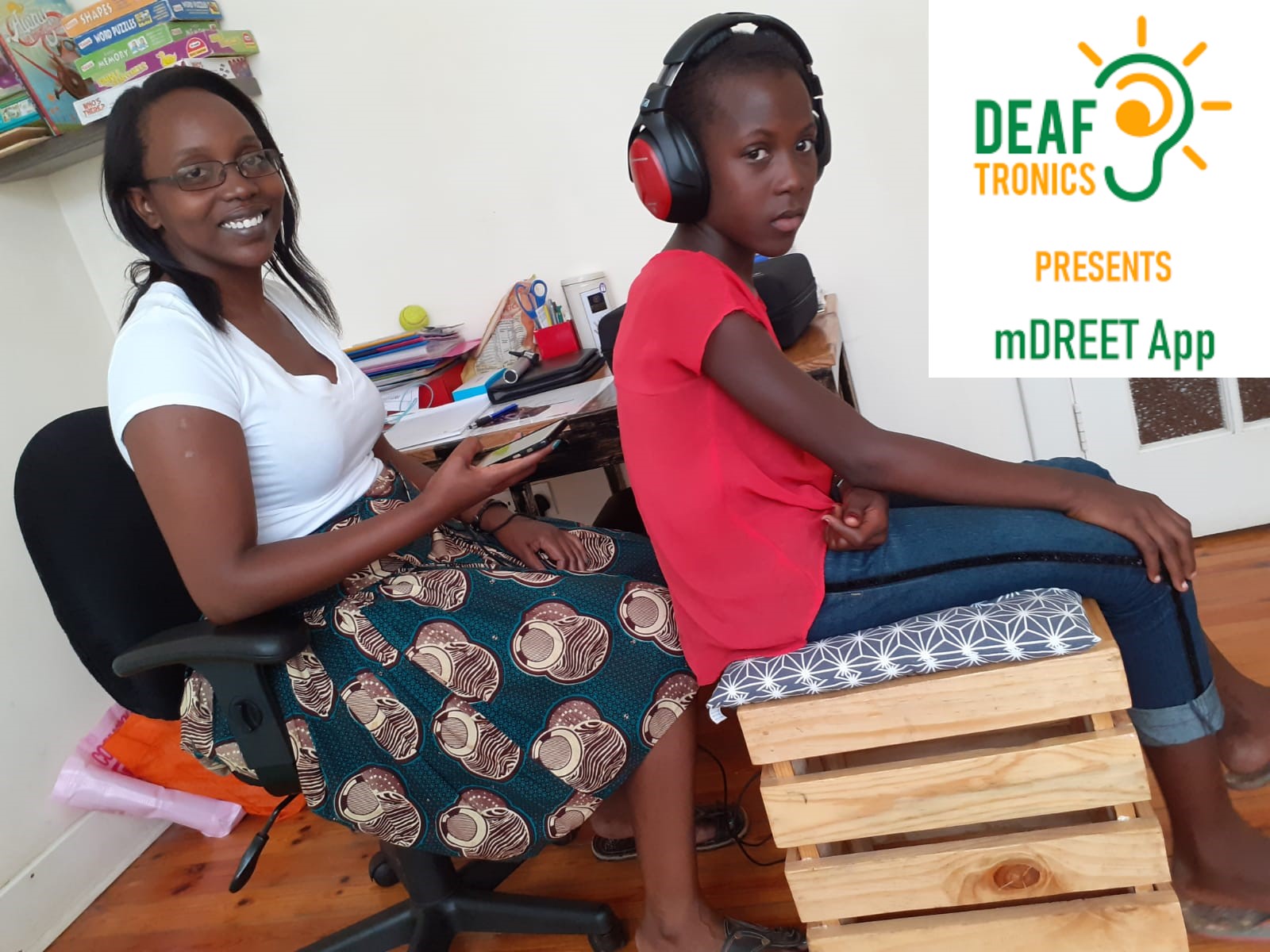
Prophylaxis with an app and improving the quality of life with solar power: The finalist Deaftronics piloted the app mDreet and has developed an ingenious hearing aid with a rechargeable battery that lasts for 2-3 years and can also be used in 80% of hearing aids on the market today. This solution is not only solar powered but also affordable and eco-friendly. It can be charged either under the sun, a household light or via a cell phone plug – a revolutionary idea, relevant for the whole world.
In African countries, one audiologist serves two to six million people, whereas in Germany, by contrast, it is one audiologist for around 5500 citizens. Because of the extreme shortage of health specialists in Africa, a high number of impairments stay undetected.
Apart from their rechargeable hearing aid batteries, Deaftronics piloted the app mDreet, a mobile hearing test, in Botswana, Tanzania, Zimbabwe, and Uganda with partners and development organizations like UNICEF, Mercy Corps and Johnson and Johnson.
The 12 team members from Deaftronics share one particular vision: They want that “Africa can hear again” by offering a holistic hearing solution through innovative audiometry screening and cost effective solar ear molds. Their immediate goal is to provide hearing screenings for 100.000 schoolchildren in Kenya and Nigeria within 12 months, to expand their team of health workers, and to partner up with organizations within the area of hearing impairments.
Since their launch in 2019, Deaftronics has sold about 30.000 units and helped more than 10.000 children. With its hearing test, mDreet has been revolutionizing and democratizing the field of screening. We wish Deaftronics with mDreet all the best in continuing to let Africa hear, “what the world is saying”!
Gerocare
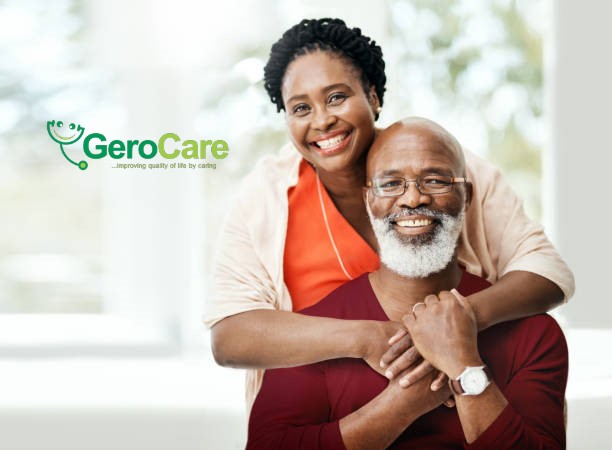
Access to quality essential healthcare services for the elderly: The finalist GeroCare decided to improve the medical structure and be “a pioneer for medical inclusion by leveraging technology to provide access to medical care to underserved segments of people across Africa,” especially for the elderly population. Among other things, they enable regular doctor home visits, also in rural areas.
GeroCare brings the hospital to the homes of senior citizens to improve their quality of life and reduce the rate of deaths from chronic diseases. Relatives can subscribe for their parents from all over the world. After signing up and making an initial payment, subscribed patients are instantly matched with a doctor. Regular monthly visits or phone calls are scheduled. Families are updated with regular information on the health status of their elderly relatives. In addition, it is possible to pay for any tests, drugs, and their direct delivery via the app.
Growing fast, GeroCare currently has over 115,000 users from individual and enterprise plans. More than 750 doctors as well as 900 pharmacies and laboratories are registered on the cloud-based platform. The company provides primary health services in 52 locations across 36 states in Nigeria and has the vision to impact around 2.7 million elderly people.
Launched in 2017, the team with 10 full-time employees (40% women) has provided access to doctor home visits for about 20,000 active subscribers. We wish GeroCare all the best in reaching out to more people in Nigeria and contributing to the body of knowledge in African Geriatrics.
Lifestores Healthcare
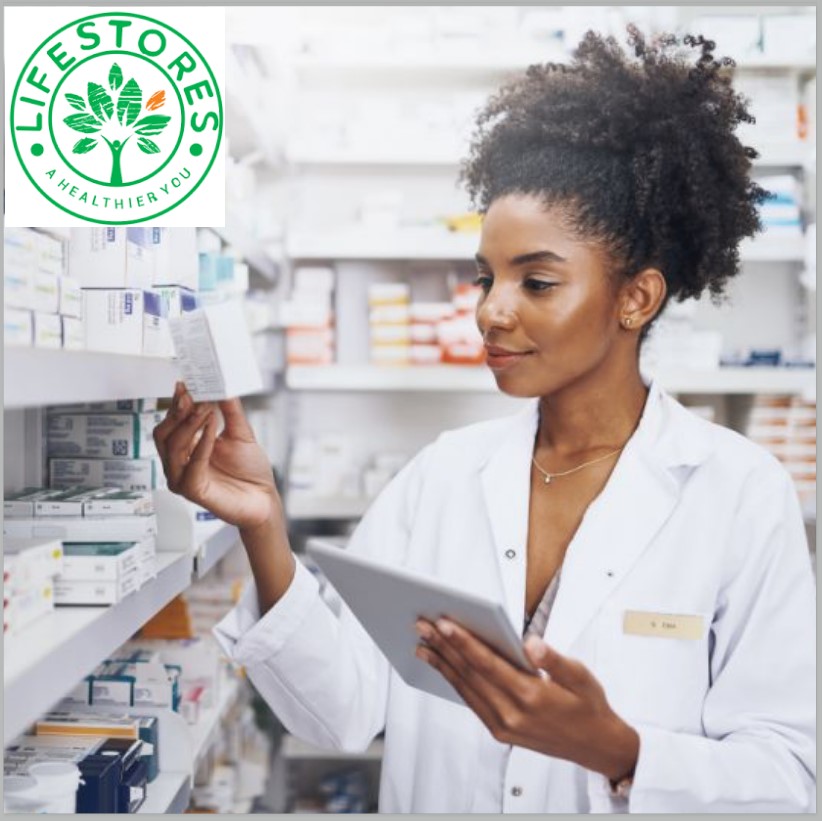
Digitizing pharmacies in Africa: The finalist Lifestores Healthcare improves the frontline of primary healthcare in Africa by making medicine more available, authentic, and affordable. The pharmacy market on the continent is big and offers a huge number of opportunities for impact, because for African citizens pharmacies and chemists are the main patient contact points.
The end-to-end platform pharmIQ has been designed by pharmacists for pharmacies and fights fake drugs, improves access, and reduces costs. It allows better sourcing and thereby enhances the overall quality of the medications offered. Moreover, it provides a digitized inventory management, which improves the availability of medicine and saves, on average, between 5 and 10% in procurement costs.
More than 100,000 patients are served through this holistic pharmacy management network with its e-commerce services. Lifestores Healthcare serves more than 500 registered pharmacies and helps them reduce the cost of essential medicine as well as boost their healthcare outcome.
Launched in 2017 with their headquarters in Mauritius, the company has over 60 full time employees (50% female) operating in Nigeria. Lifestores Healthcare also runs its own chain of lean pharmacies as well as a chronic disease management program and plans to expand further in Nigeria, aiming to serve up to 1 million patients per day within the next 3-5 years.
Therefore, they want to educate and get new partners on board. We wish Lifestores Healthcare a lot of success in their endeavor to digitize pharmacies in Africa!
Rocket Health
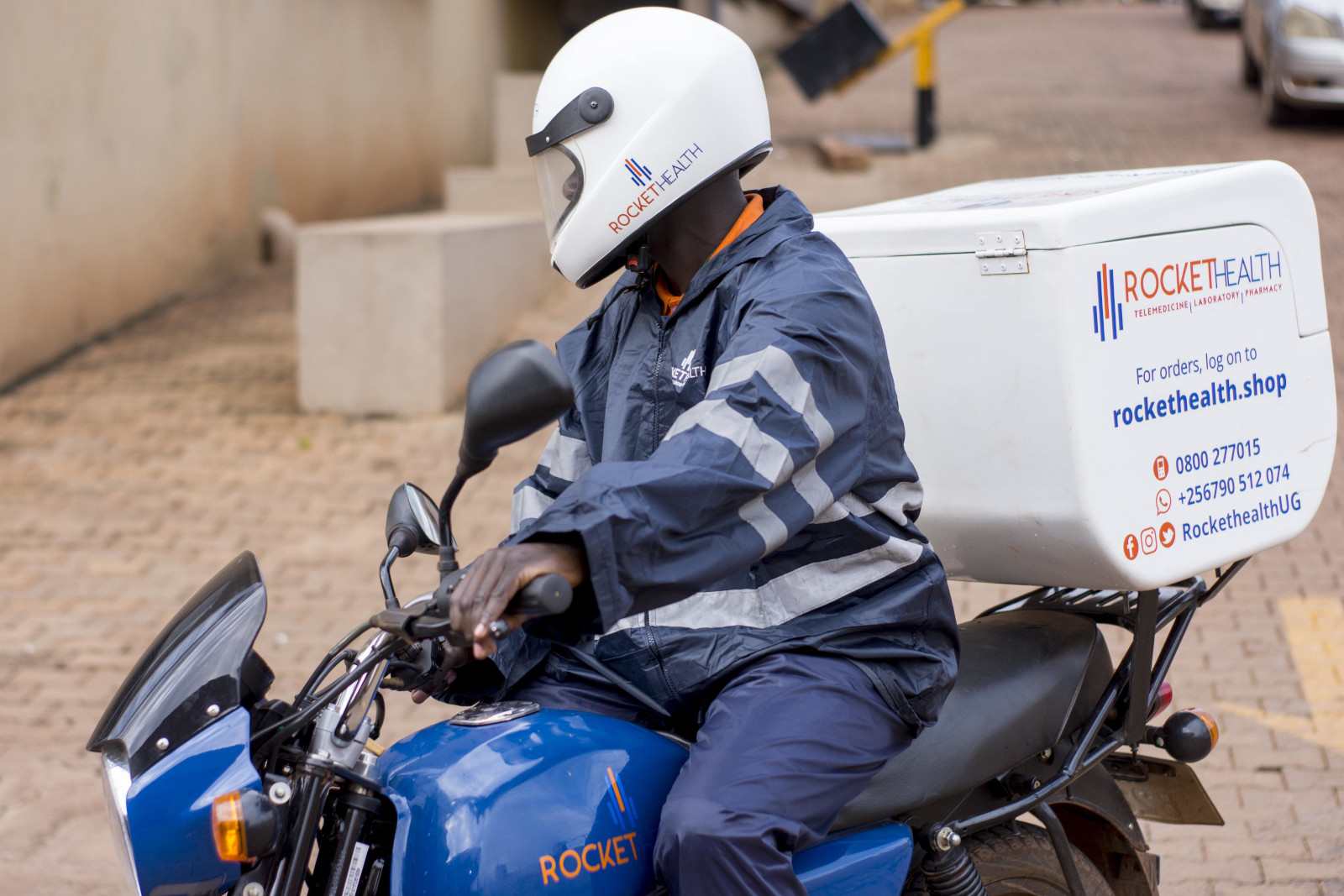
Telemedicine for long distances: The finalist Rocket Health prepared a “last-mile laboratory and pharmacy service for patients with chronic diseases”.
African countries struggle with a low doctor-to-patient ratio (1:25,000), an expensive healthcare system and a high mortality rate due to ailments such as hypertension, cancer, diabetes or mental illnesses. Rocket Health offers holistic and highly convenient health services for the whole family to reduce morbidity and mortality rates in Uganda.
The company currently has two service points in Uganda and introduced the USSD short code *280#. It offers teleconsultations with doctors through its 24/7 call center (chat/voice/video) and has a large network of laboratories, clinics, and pharmacies. Lab results are emailed, self-care kits with healthcare devices like blood glucose meters or blood pressure monitors can be provided, and a fleet of 15 motorcycles makes sure of a timely delivery of all medical supplies needed. Moreover, health content about various aspects of chronic diseases has been developed and translated into local languages and can be disseminated via mobile messages.
Since their launch in 2012, Rocket Health's 108 full-time employees (50% women) have helped around four million people in Uganda. The start-up has been very successful with their chronic disease management, online doctor consultations, and home deliveries of medicines, wellness checkups, and vaccination services. We wish Rocket Health all the best in their ambitions to reach more customers and expand further in Uganda as well as Kenya in the future.
Talamus
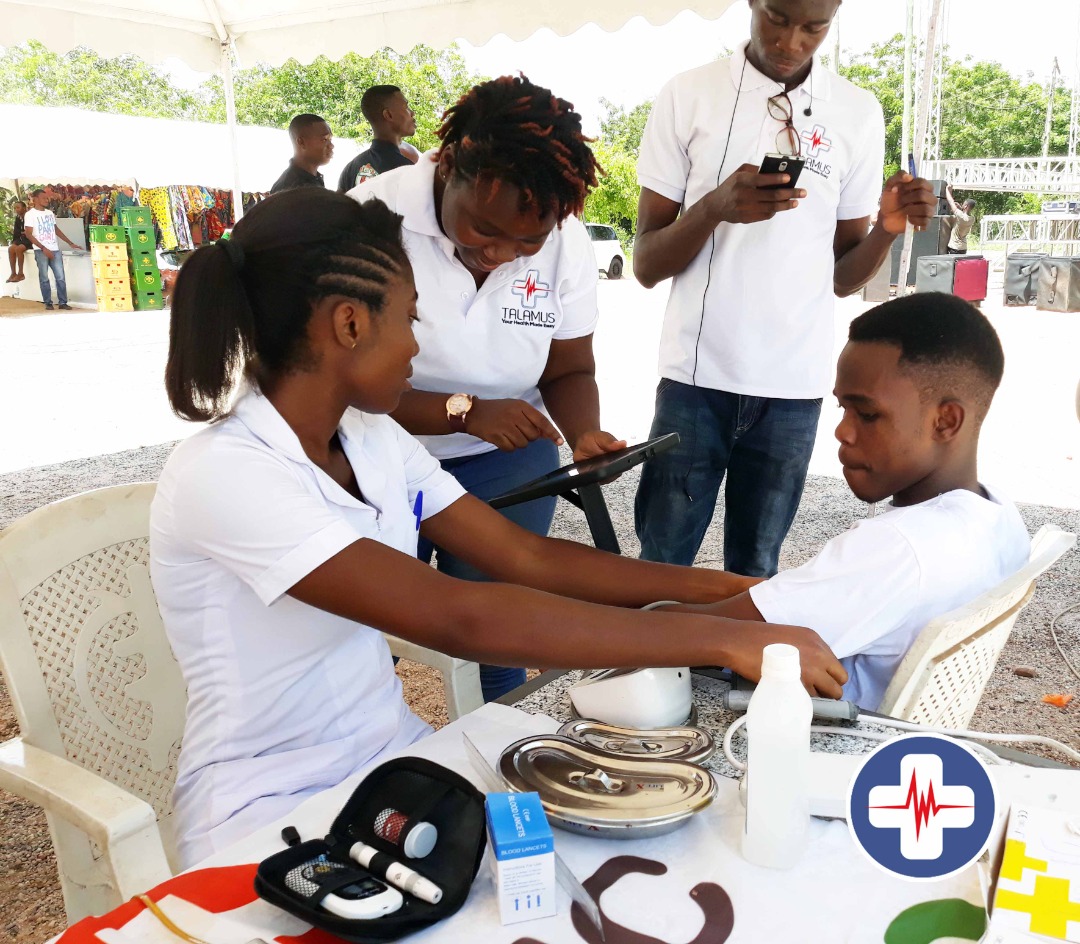
Improving primary healthcare: Our finalist Talamus Health creates simple and secure connections for better outcomes within the area of health and well-being with its fully integrated mobile health platform. This African venture uses the connection of various data flows to improve healthcare systems in African countries that struggle with high costs, limited access, fake drugs, improper care, poor billing, and silo records.
Talamus Health breaks down process silos and unifies the patient journey by integrating the entire health value chain into their digital marketplace. Through a free app, patients can be connected with hospitals, pharmacies, diagnostics, and low-cost insurance providers. Therefore, Talamus Health created universal access to affordable quality healthcare.
This healthcare solution has already managed to reduce waiting times in Ghanaian clinics by nearly 70% and medication costs by up to 30%. The comprehensive interface is easy to use and enables to process patients’ needs without any interruptions or paperwork. In the future, they would like to develop a local language assistant to facilitate access to their services for marginalized and vulnerable populations.
Over 130,000 patient records speak for the high quality of this fully integrated mobile health platform. Around 200 clinics and hospitals, 520 pharmacy outlets, and 80 laboratories are integrated. Talamus Health is operating in Ghana, Nigeria and Zimbabwe.
In Ghana, Talamus has already run a successful pilot with the Ghanaian government. In Nigeria, Talamus has also secured a digitization contract with the Lagos State Government to digitize 100 primary health centers. As part of this Lagos contract, Talamus will digitize over 100 pharmacies and 25 laboratories to close the gap of access to quality healthcare and medication for a rapidly growing population. Furthermore, the start up has collaborated with Zimbabwe’s largest telecom provider to expand their reach to mobile phone users in the country.
Founded in 2016 with its headquarters in the United States, Talamus Health has 54 employees (45% female). We wish Talamus Health all the best in reaching out to more countries and securing primary healthcare systems in Africa.
Shezlong
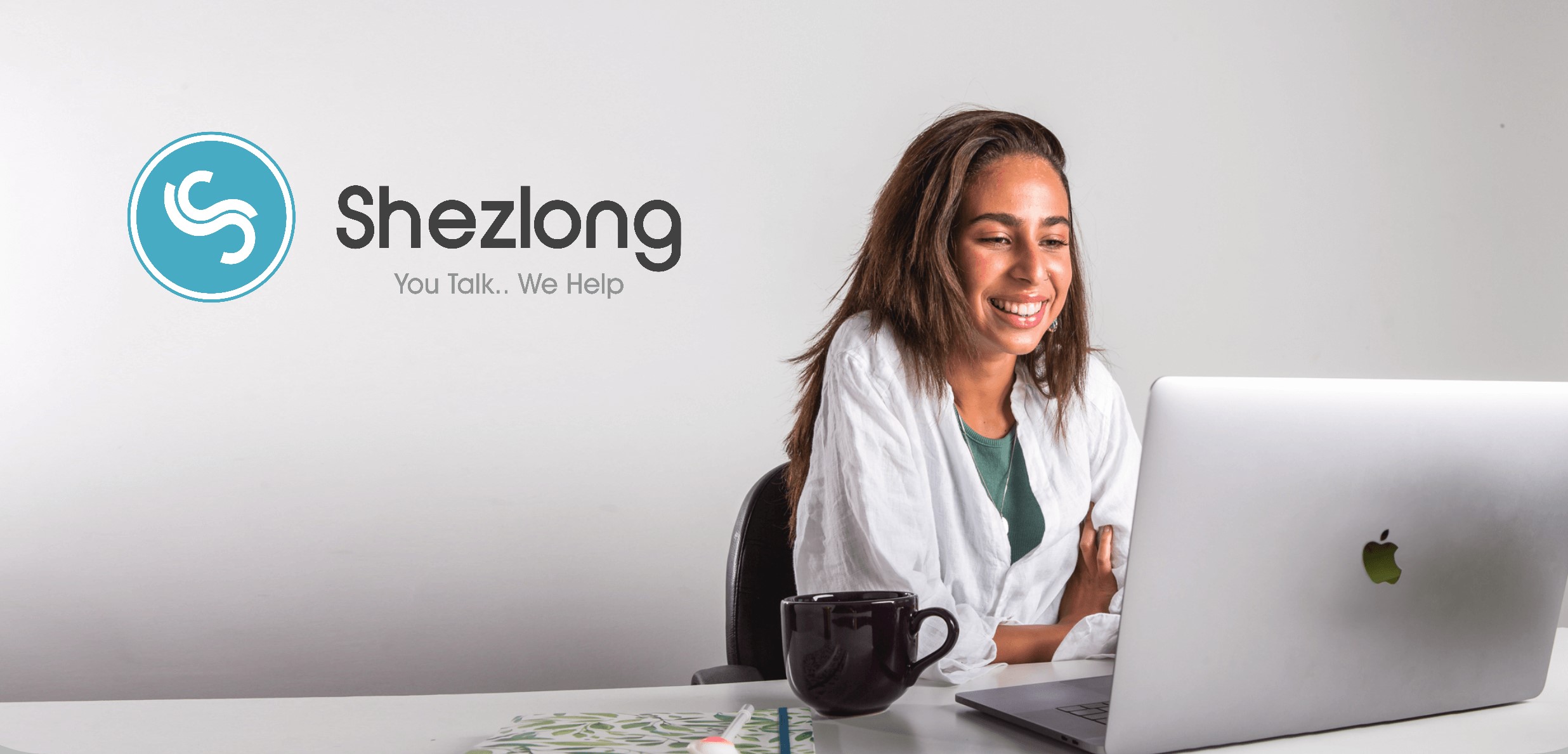
Tailored therapy through digitization: The finalist Shezlong has developed a digital solution around mental health services, with a special focus on women. The company provides private, affordable, and anonymous online therapy and counseling sessions for people around the globe at any time.
In Africa, the number of people who can’t find proper treatment is increasing rapidly. The online psychotherapy platform from Shezlong offers a modern, comprehensive platform for peoples’ mental well-being, including people with impaired hearing by using sign language. After assessing the psychological status and visiting the blog for guidance, it’s possible to select a proper therapist and make an appointment. Currently, more than 350 therapists from 25 different countries are registered, 65% of them are female.
During the last five years, Shezlong has been growing exponentially. Nobel Prize laureate and diplomat Kofi Annan emphasised, "Calling the challenge of depression a global crisis is no exaggeration…[D]epression must become a global priority because it not only affects health and well-being but also diminishes labour productivity and economic growth."
The 45 team members from Shezlong share a great vision. They are sure that “through innovation it’s possible to rethink mental well-being for a balanced and healthy society”. They aim to “make mental wellness a daily routine for every individual in Africa, help build resilient communities and induce a positive impact on the welfare of the society”.
Since their launch in 2014, more than 110.000 sessions in 85 countries have been counted. So far, 63% of all clients have been female. We wish Shezlong all the best in continuing to improve mental well-being in Africa and beyond.